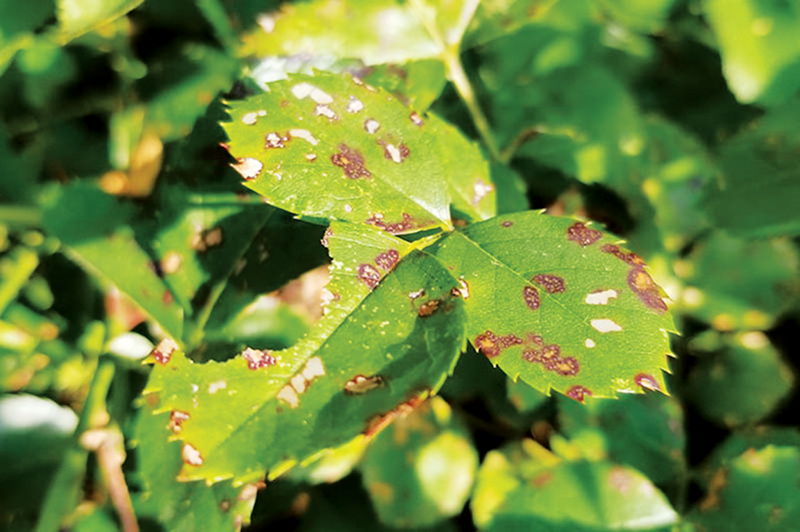Don’t rush to the garden hose just because it’s hot out

 CLAYTON, CA (July 20, 2024) — Hot weather puts many garden lovers into panic mode.
CLAYTON, CA (July 20, 2024) — Hot weather puts many garden lovers into panic mode.
They instantly arm themselves with the garden hose and prepare to water their beloved roses, perennials, vegetables and lawns. Depending on the heat, they may perform this watering ritual mistakenly twice or three times a day.
Some garden lovers don’t realize that over-watering roses, perennials and flowers during the hottest part of the day is far more harmful to your plants than some dry, or wilted leaves.
I always tell garden lovers who inquire about watering that I water each plant thoroughly once in the morning. My philosophy is that just because the leaves look dry and the flowers tired, the plant doesn’t always need another drink. I place a moisture meter into the soil and check to see if the soil is actually dry. Often, it’s not. In that case, you should not re-water. I then explain to the customer that they too would look dry and wilted if they were standing in the hot sun all day.
Early to rise
Watering should be done as early as possible. This way your plants have enough stored up energy to face the day. Water deeply, from the bottom of each plant. Avoid the urge to mist your plants’ foliage. Water on the leaves becomes reflective and encourages leaf burn.
Adding a thick layer of mulch or soil conditioner throughout your landscape beds and borders helps reduce evaporation from the soil, keeping plants cooler during the heat. When applying, keep the mulch from piling up at the base of the plants.
Look for a product with ground mulch combined with a touch of chicken manure. Master Nursery and EB Stone have such products, so finding those ingredients is easy. Master Nursery calls it product Gold Rush, and EB Stone has Bumper Crop and Soil Booster.
Extreme heat and sun are a true test to how hardy and sun-loving some of your plants are. If your plants exhibit leaf damage to the point that their leaves are crunchy, you need to remove the damaged leaves. In some extreme cases, you will have to cut the plant back some.
After any type of pruning, give your plants a dose of water-soluble fish emulsion. It’s mild and will help your plants slowly regrow.
Lawn maintenance
Lawns also need some extra care during the summer. Keep your lawns tall to shade the roots, protecting them from drying out.
If you haven’t had your lawn aerated in years, now would be the time. Aeration allows the water to penetrate deeper into the soil, rather than running off. Once aerated, spread a thin layer of compost or a soil conditioner on the lawn area. This adds nutrients naturally.
Resist fertilizing, because it will make your lawn grow fast. Expending that energy will increase your lawn’s need for more water. Water your lawn in the early morning at intervals of 4-5 minute cycles, and repeat three times. This way, your grass can absorb the water that it’s given.
Vegetable plants will often wilt at the end of a hot day, especially the large leaf cucumber and squash. Just because the leaves wilt doesn’t mean they need to be irrigated.
Even during the hottest days, I’ll still skip 1-2 days between waterings. At this point, my plants are very established and the roots have spread. Overwatering vegetable plants can be the start of viruses. Use a moisture meter to make sure you water when it’s needed at the root.
Contact Nicole Hackett with questions or comments by email at gardengirl94517@yahoo.com.

Nicole Hackett
Nicole is the Garden Girl at R&M Pool, Patio, Gifts and Garden. You can contact her with questions or comments by email at gardengirl94517@yahoo.com
